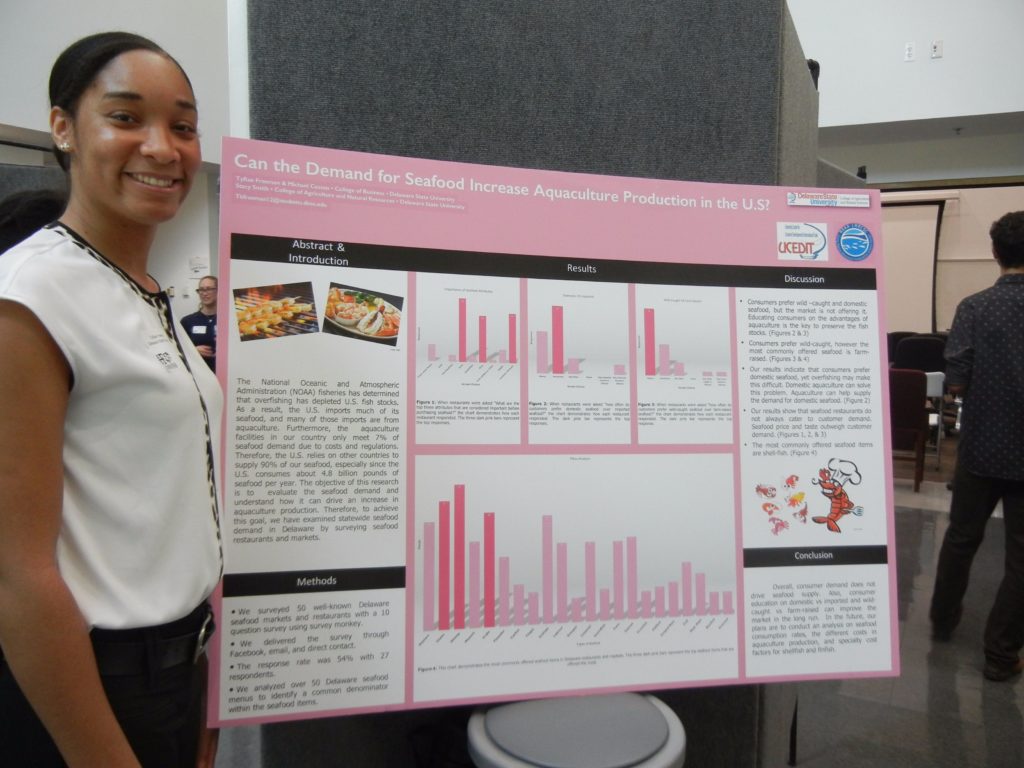
The Mission of research within the LMRCSC is to train world-class marine scientists who conduct innovative and collaborative research using a diversity of skills and approaches, in the areas of Assessment, Climate and Ecosystems, Healthy Habitats, and Safe Seafood.
Research conducted by LMRCSC students and faculty must be relevant to NOAA’s mission, in alignment with the strategic plans of NOAA National Marine Fisheries Service Science Centers, and integrate socioeconomic and behavioral sciences.
Assessment
The LMRCSC conducts research that supports stock assessment of living marine resources, by describing and understanding population abundance, migration and distribution patterns, predator-prey relationships, habitat use, age structure, growth, mortality, reproductive biology and behavior, and responses to environmental variability. We support development of efficient harvesting strategies by studying alternative fishing gear and methods, bycatch and discard mortality, and the impacts of fishing gear on marine habitats.
Climate and Ecosystems
The LMRCSC conducts research on the effects of changes in ocean temperature, salinity, acidification, or other physical parameters on the distribution, and production of living marine resources, including reproduction, growth, mortality, spread of diseases and contaminants, and sustainability. We also support research on new technologies to measure and record such changes, creation of models to predict the outcomes of future scenarios, and research to understand the socio-economic effects of climate changes on coastal communities.
Healthy Habitats
The LMRCSC conducts research to define the essential characteristics of marine habitats, understand the role habitats play in the health and sustainability of living marine resources, and understand the impacts of marine activities on habitats, including fishing, development, nutrient inputs, anoxia, pollution, noise, HABs, and contaminants. We help develop strategies to conserve and restore marine habitats, and to mitigate impacts of habitat degradation on marine ecosystems, particularly coral reefs and estuaries. We also support studies to determine the impacts of habitat change on social and economic communities that depend on them, including development of improved coastal and marine spatial planning efforts.
Safe Seafood
The LMRCSC funds research to support the development of an economically and environmentally sustainable marine aquaculture industry, including studies on biological and physical conditions for rearing fish and shellfish, studies on the husbandry, physiology, genetics, immunology, metabolism, pathology and disease-resistance, chemical ecology, reproduction, and nutrition of aquaculture species, development of fish meal free diets, impacts of HABs, and methods to optimize growth, production and sustainability in aquaculture systems. We also support research on the assessment of environmental, social and economic impacts of aquaculture in order to improve the efficiency and sustainability of environmentally friendly shellfish and finfish cultivation.


